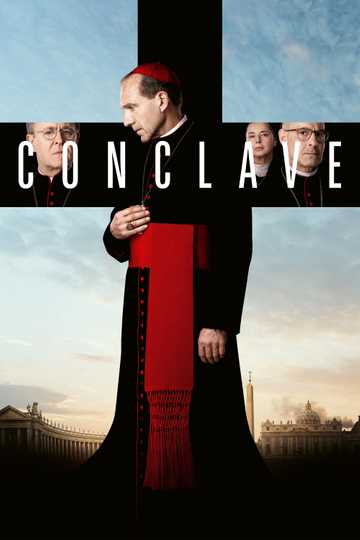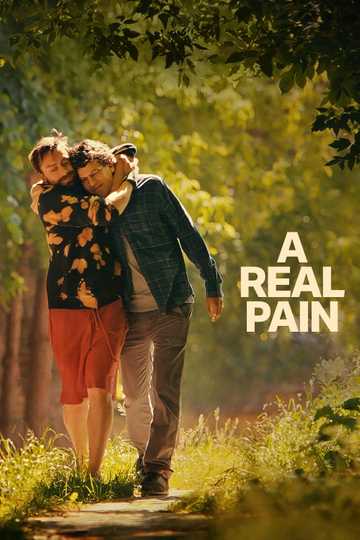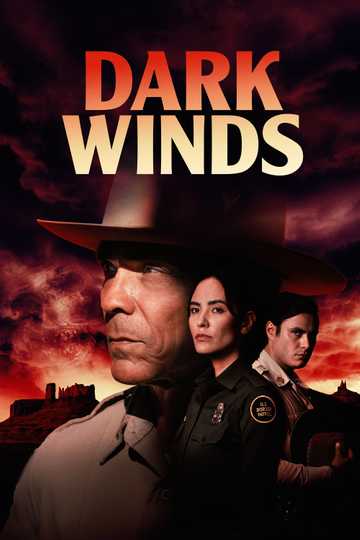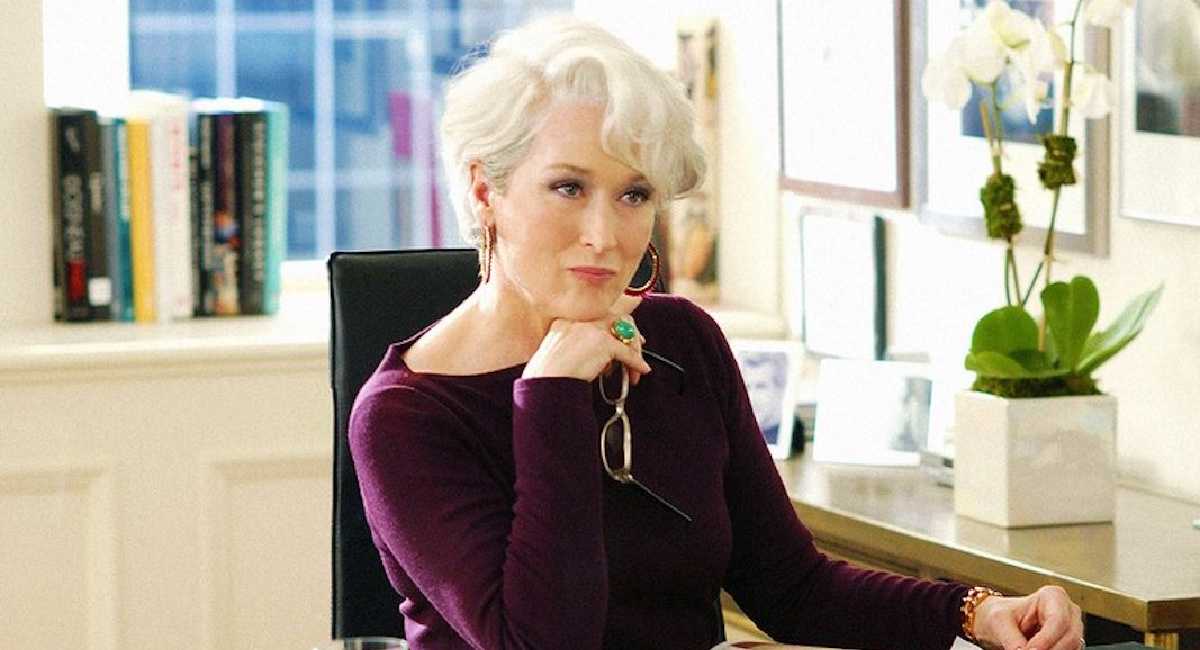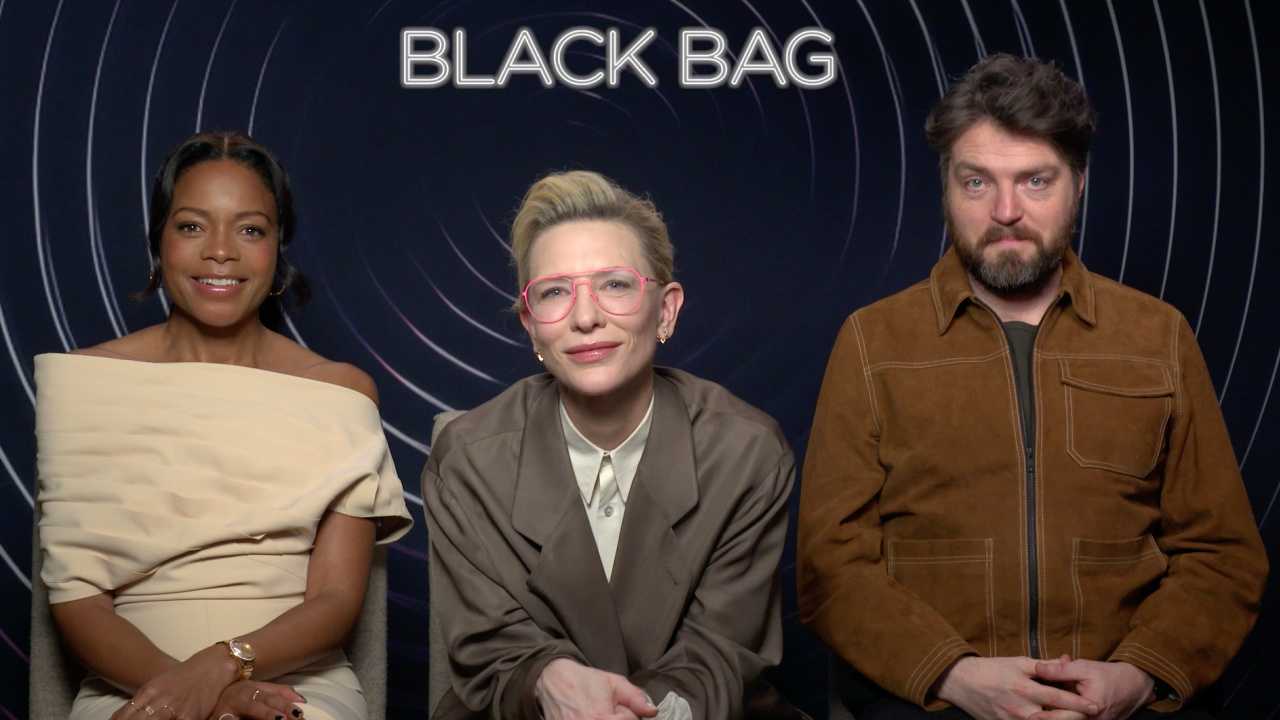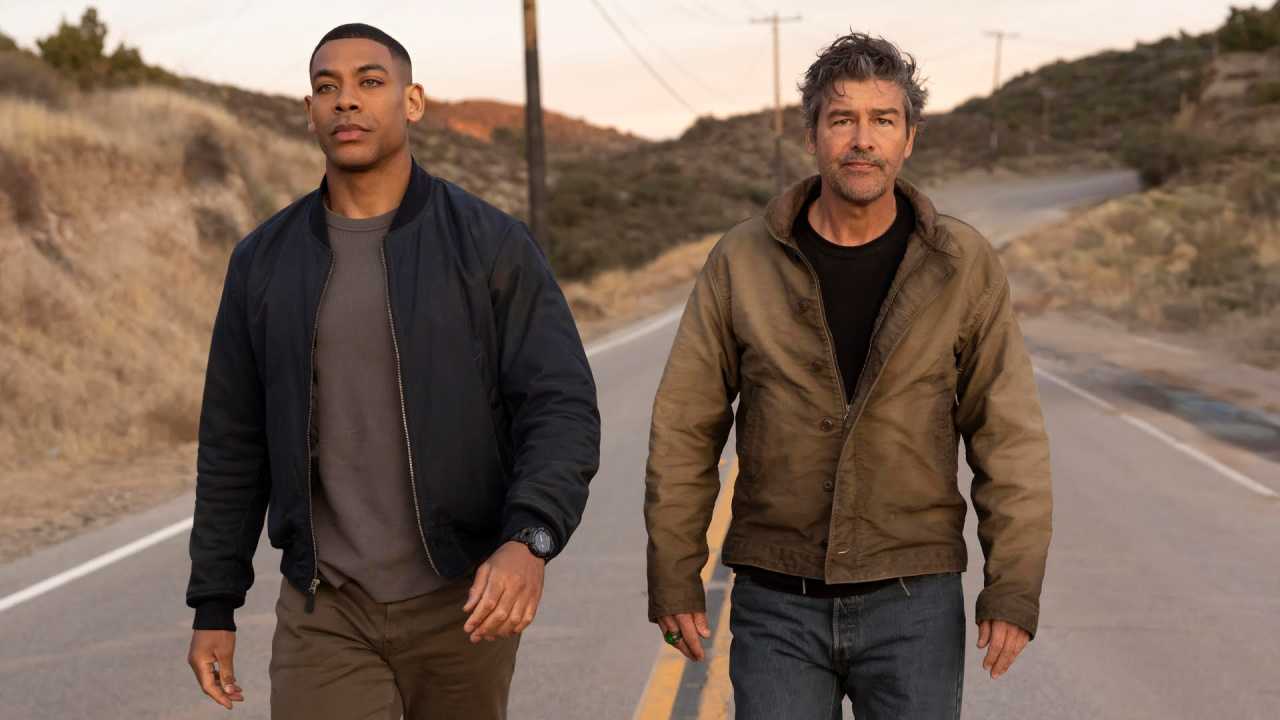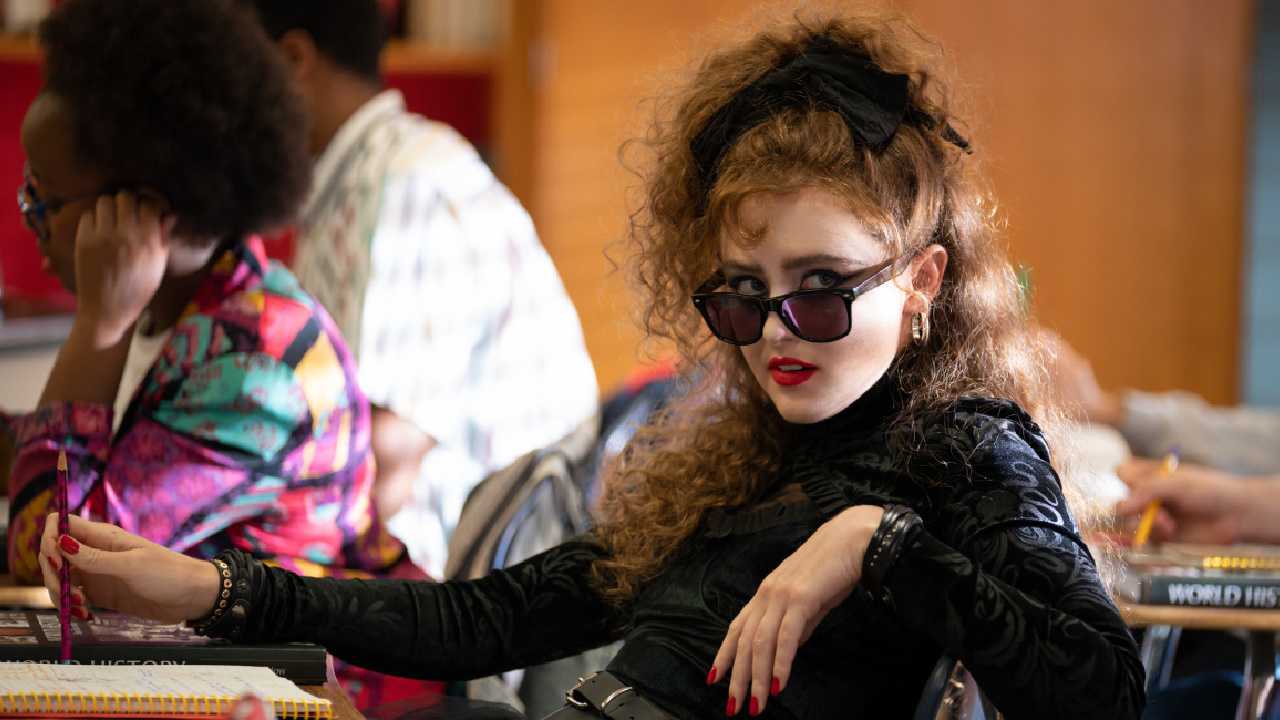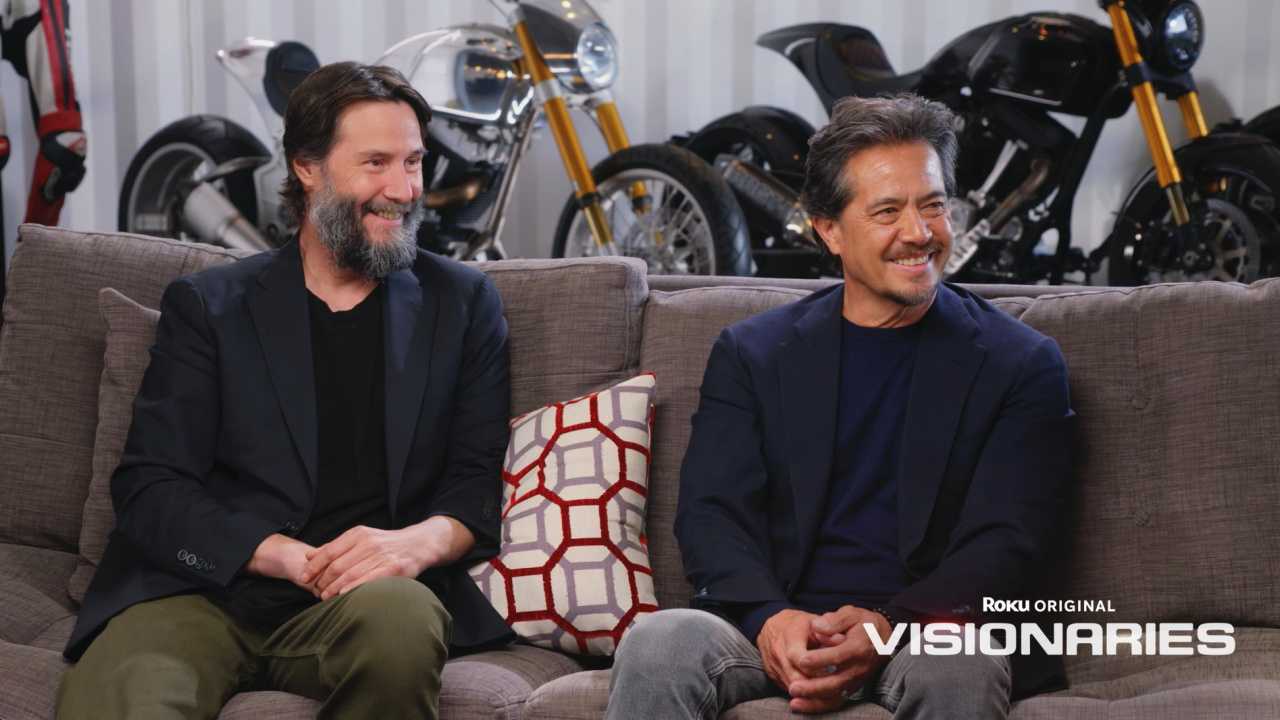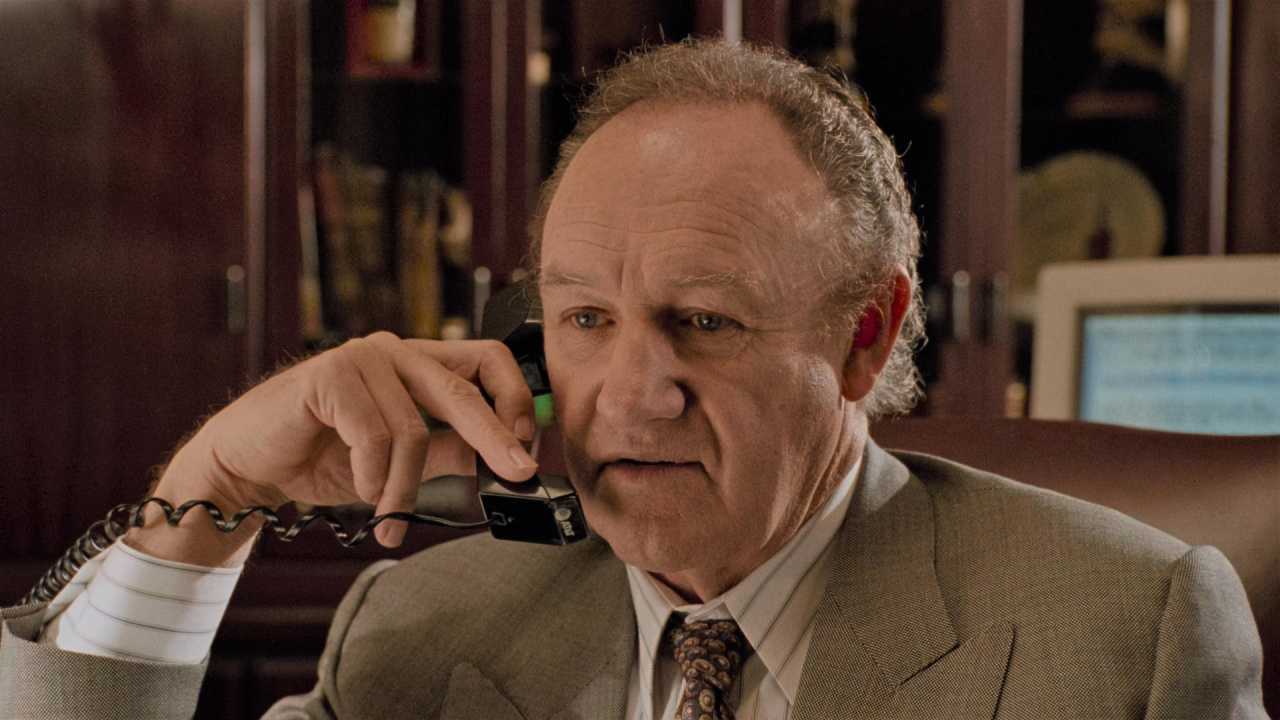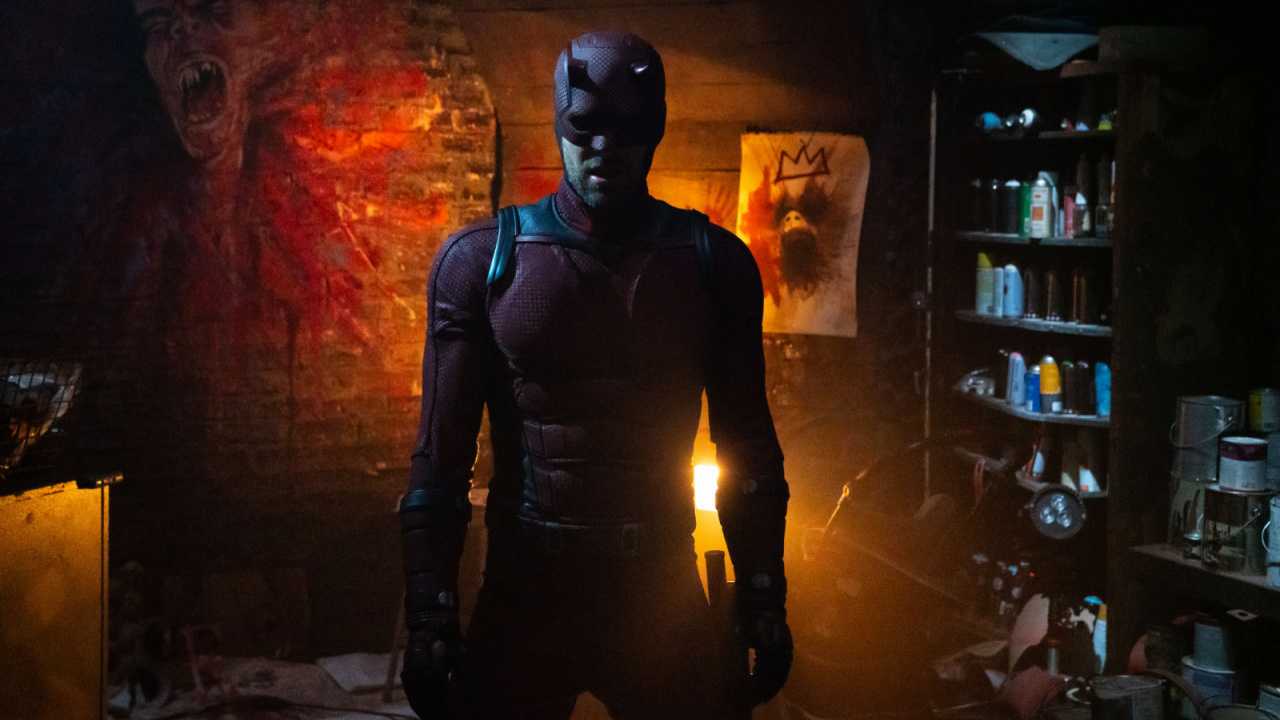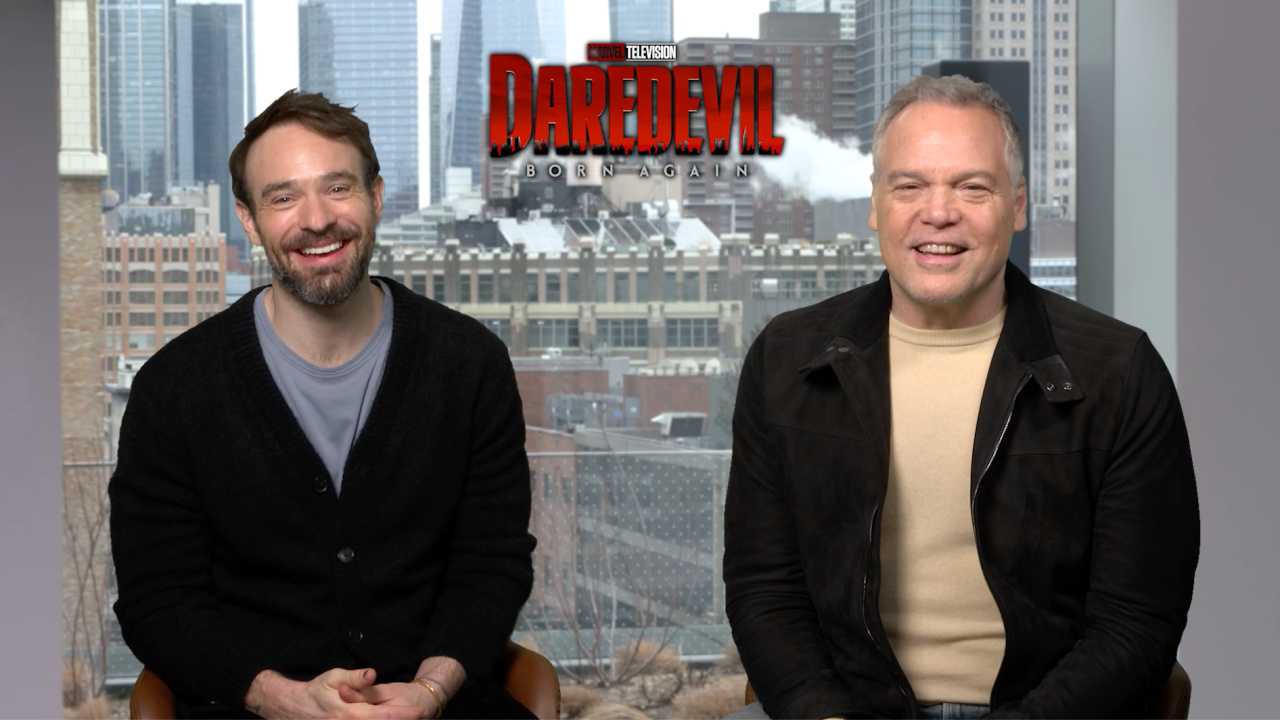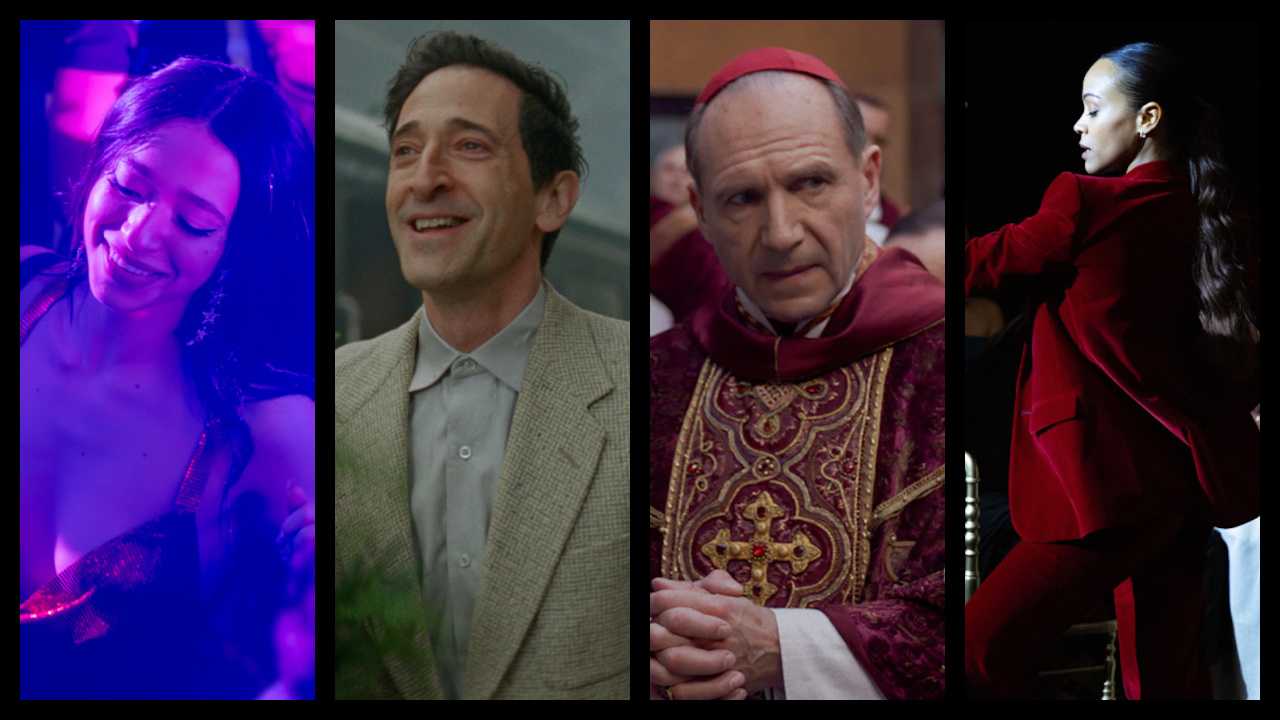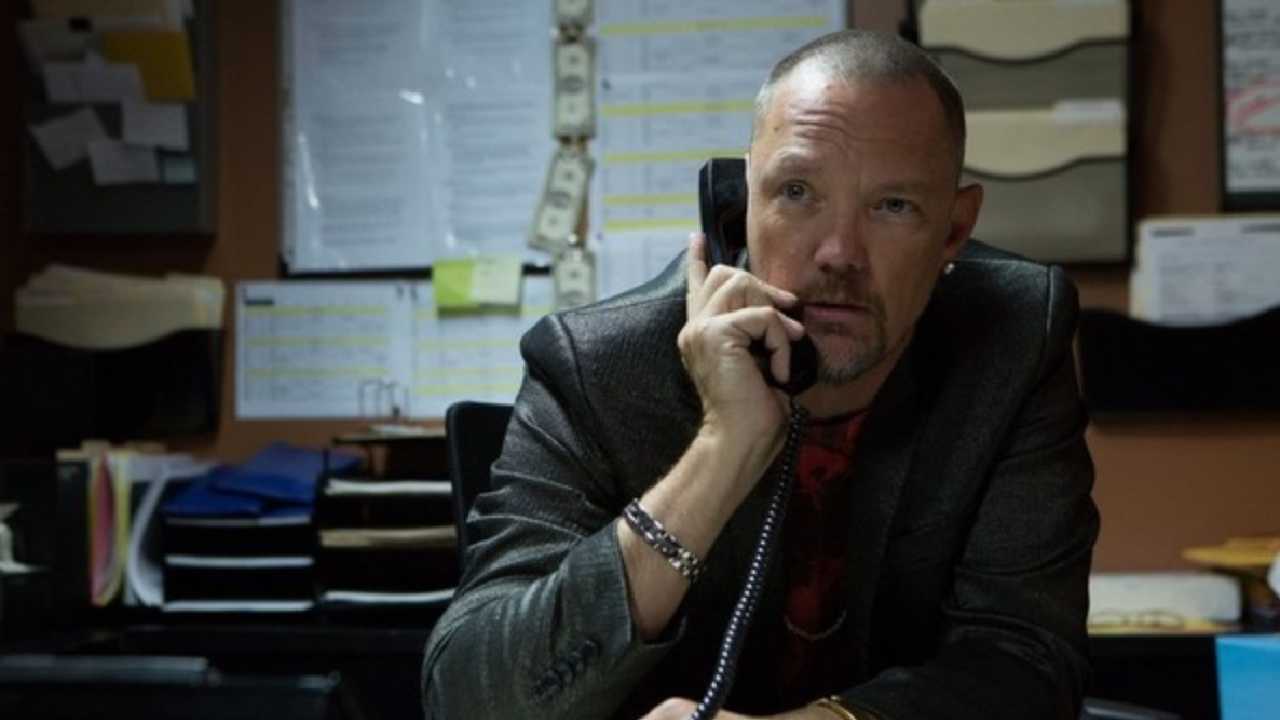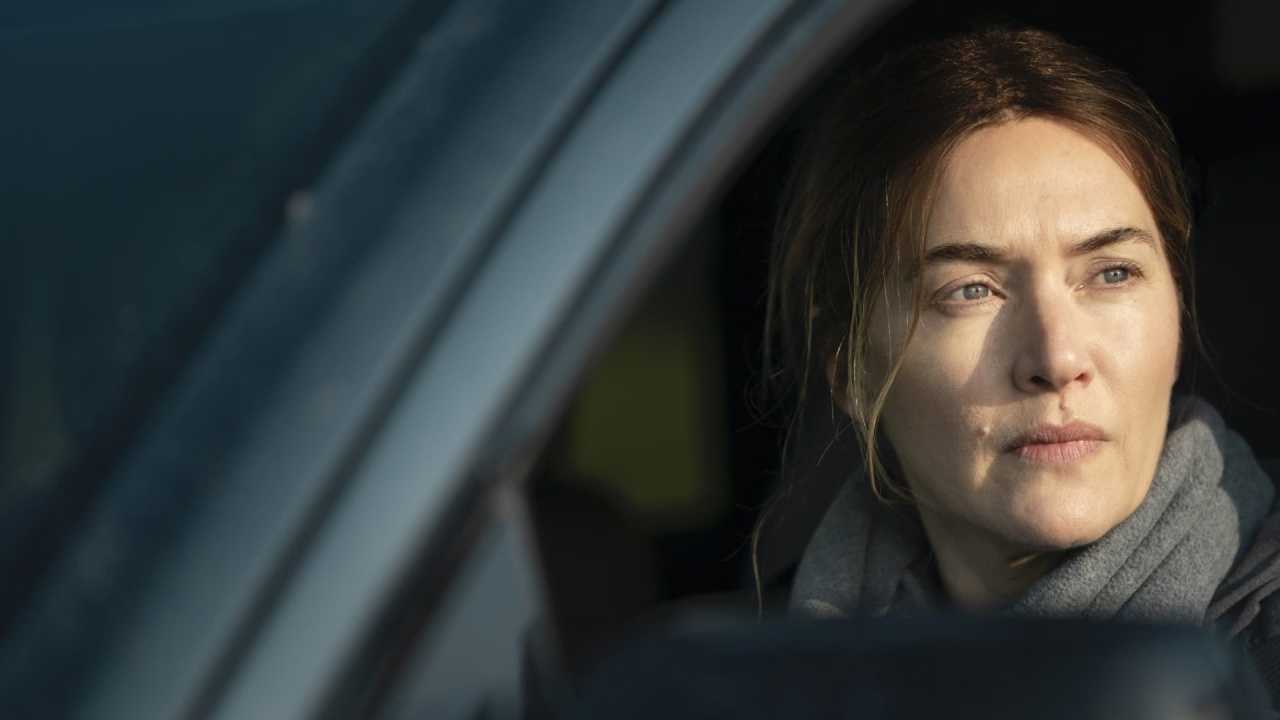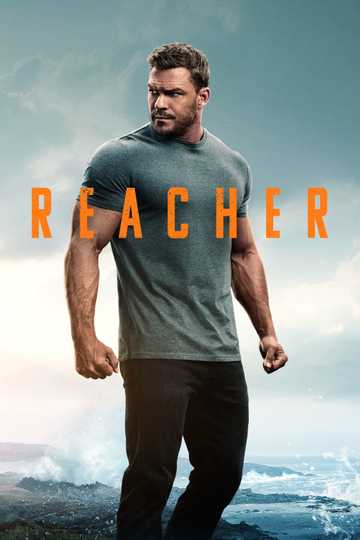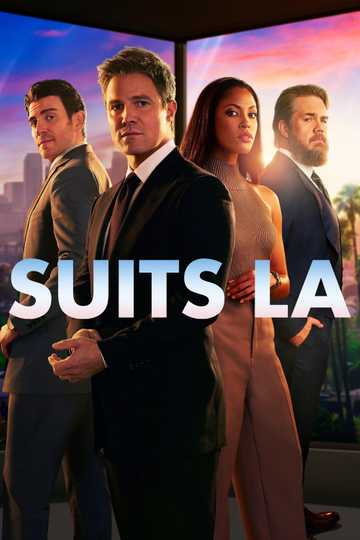Director Alexander Payne and Editor Kevin Tent Talk 'The Holdovers'
Moviefone speaks with Alexander Payne and Kevin Tent about 'The Holdovers.' "It's set in 1970, but it looks and feels like a movie made in 1970," Payne said.
‘The Holdovers,’ which is the eighth feature film from two-time Academy Award winning filmmaker Alexander Payne (‘The Descendants’) and reunites him with ‘Sideways’ actor Paul Giamatti, opens in theaters in limited release on October 27th before opening wide on November 10th.
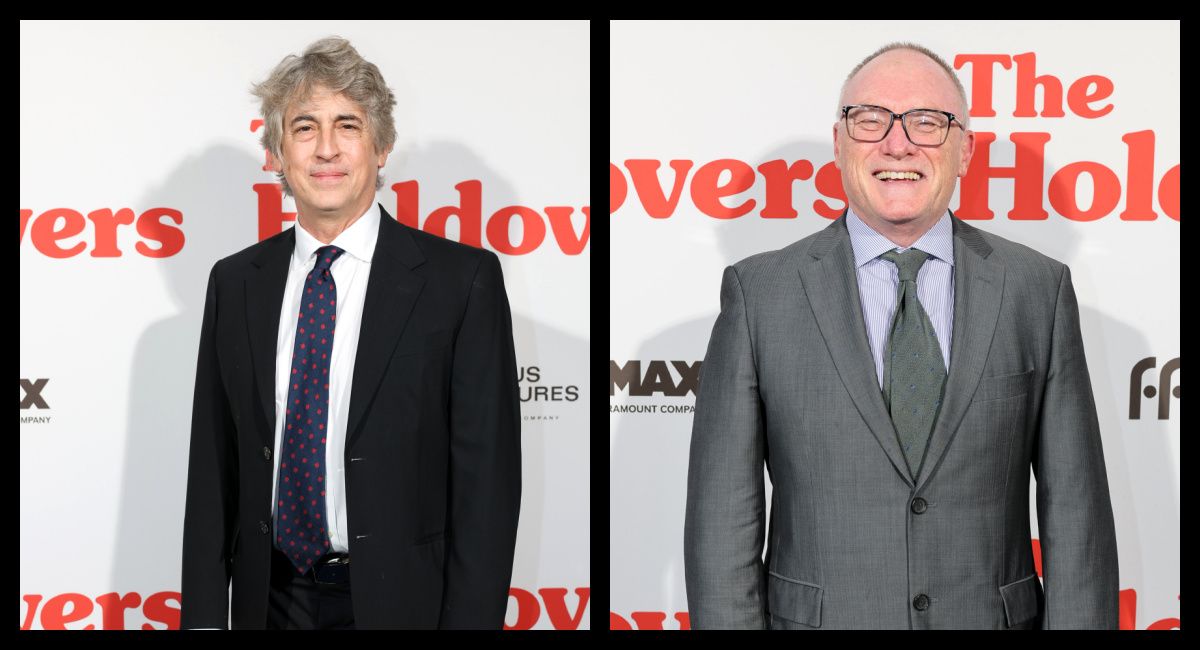
(Left) Director Alexander Payne attends the Focus Features' 'The Holdovers' Special Screening at Academy Museum of Motion Pictures on October 23, 2023 in Los Angeles, California. Photo by Eric Charbonneau/Getty Images for Focus Features. (Right) Editor Kevin Tent attends the Focus Features' 'The Holdovers' Special Screening at Academy Museum of Motion Pictures on October 23, 2023 in Los Angeles, California. Photo by Eric Charbonneau/Getty Images for Focus Features.
Moviefone recently had the pleasure of speaking with Oscar-winning filmmaker Alexander Payne, as well as his longtime collaborator and editor Kevin Tent, about their work on ‘The Holdovers.’
They discussed their new movie, how Payne developed the idea for the film, crafting a movie that looks like it was made in the 1970’s, reuniting with Paul Giamatti, discovering young actor Dominic Sessa, Da'Vine Joy Randolph’s emotional performance, their working relationship, and if their filmmaking process has changed over the years.
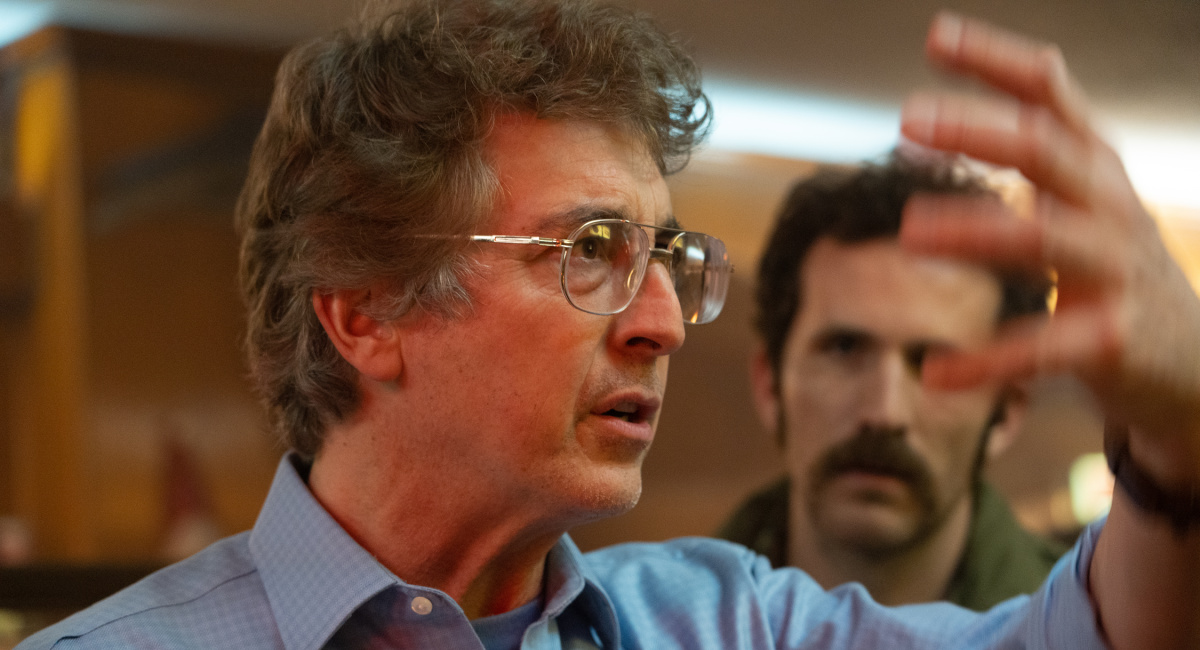
Director Alexander Payne and actor Dan Aid on the set of their film 'The Holdovers,' a Focus Features release. Credit: Seacia Pavao / © 2023 FOCUS FEATURES LLC.
You can read the full interviews below or click on the video player above to watch our interviews with Payne, Tent, and screenwriter David Hemingson.
Moviefone: To begin with, Alexander can you talk about having the idea for this movie, developing it with screenwriter David Hemingson, and the themes that you wanted to explore?
Alexander Payne: So first, just on a nuts and bolts level, the premise for the film was suggested by a 1935 French movie, which I saw at a film festival about a dozen years ago. I did nothing with the idea, but when about five years ago, I read a pilot script for a proposed TV series written by David Hemingson. It was a contemporary story at a private school, a boarding school. That's when a light bulb went off and I thought, "Well, maybe this guy can get the film up and running." I called him and asked him, and to both of our benefit, he agreed. Theme is a more unconscious thing for me personally. I just think, "Well, I'm going to write a story and themes will come unconsciously just through the process of what feels right."
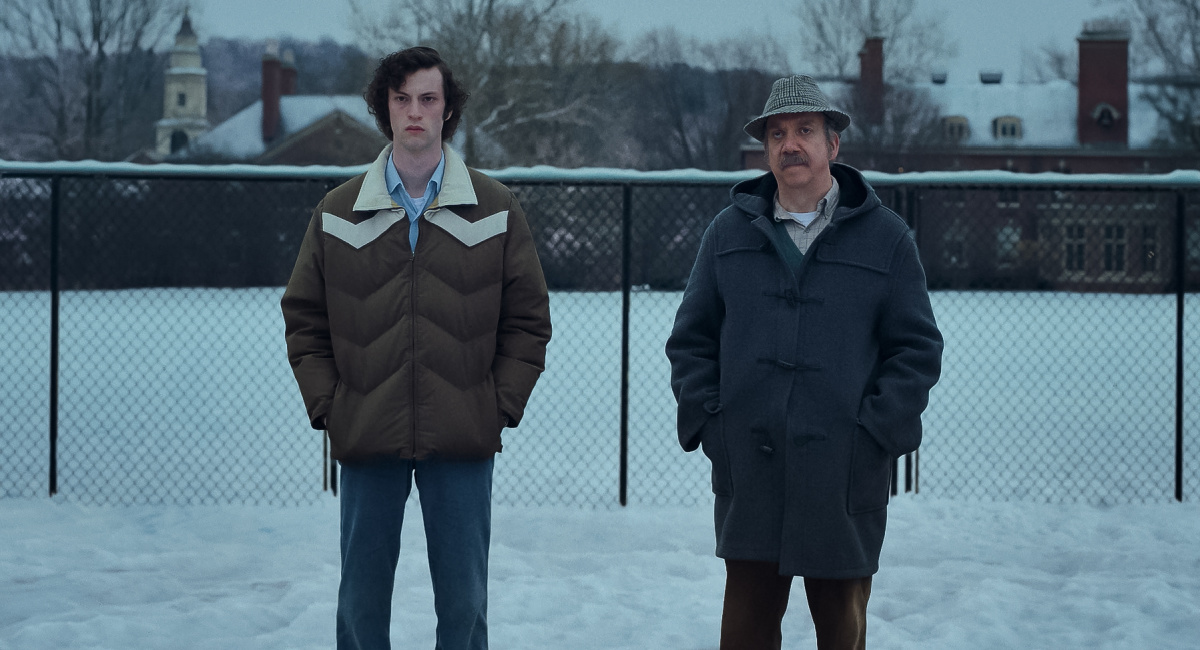
(L to R) Dominic Sessa stars as Angus Tully and Paul Giamatti as Paul Hunham in director Alexander Payne’s 'The Holdovers,' a Focus Features release. Credit: Courtesy of FOCUS FEATURES / © 2023 FOCUS FEATURES LLC.
MF: Kevin, what was your first reaction to the screenplay, and as an editor, were you already assembling the movie in your head while you were reading it?
Kevin Tent: A little bit, but I don't really know what he's going to do when I read it, and I don't know who the cast is. Although on this one, I think I knew that it was going to be Paul Giamatti. But on ‘The Holdovers,’ I think he gave me the first 30 pages and he wanted to know what I thought of that. He was trying to figure out what he wanted to do next. I read the first 30 pages. I was like, “This seems cool. It seems like a good idea. You should go for it.” So it took a while for him to get the rest of it done. But usually he'll send me the script, almost always the first draft. He'll usually send it to me and then I'll read subsequent drafts and I'll give my notes, my thoughts on things and stuff like that. But this one was in pretty good shape right from the get go and I was like, “This is going to be cool.” I think I gave him some thoughts, but I don't know if he took them or not.
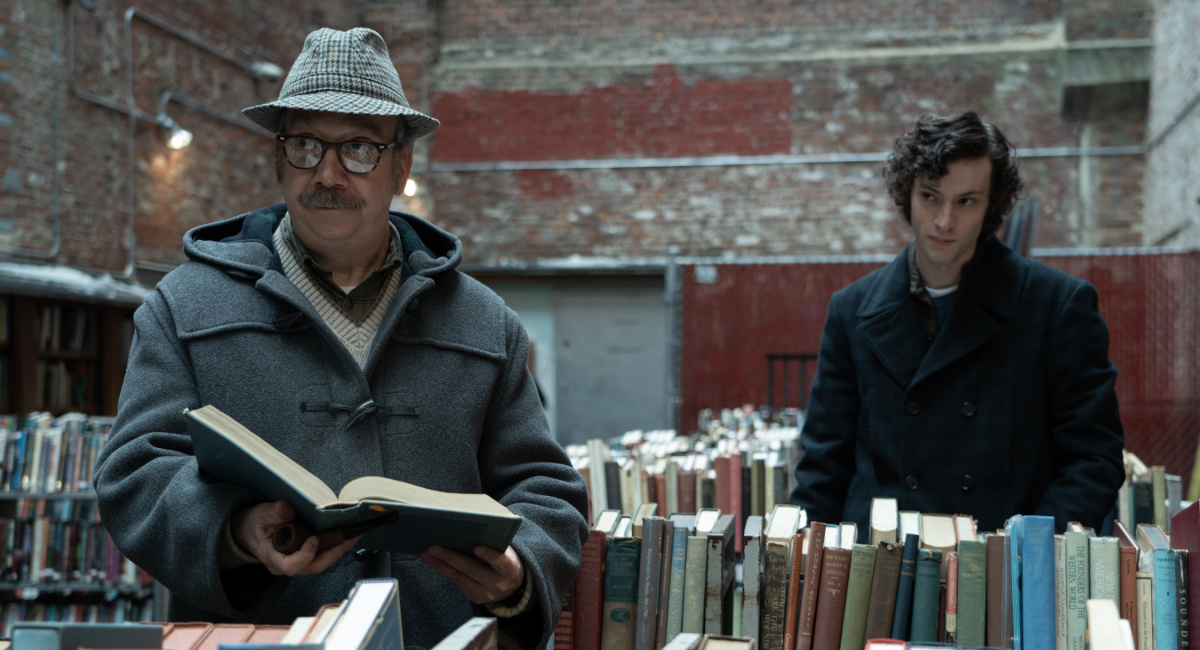
(L to R) Paul Giamatti stars as Paul Hunham and Dominic Sessa as Angus Tully in director Alexander Payne’s 'The Holdovers,' a Focus Features release. Credit: Seacia Pavao / © 2023 FOCUS FEATURES LLC.
MF: Kevin, you’ve edited every feature film Alexander has ever directed, so what is the shorthand like between the two of you at this point? When you're assembling the movie, do you know what he’s looking for, and does he ever go in a direction that you weren’t expecting?
KT: Yes and no. ‘Sideways,’ for example, when all that footage came in of the migrant workers picking grapes, I remember it was a second unit crew and there was thousands of feet of it. I remember calling him and saying, “Where's this going?” He said, “I was thinking we'd do a split screen montage,” but he had never told me that beforehand. So I'm like, “Okay, great.” We had been big fans of ‘The Thomas Crown Affair,’ the original, and their split screen sequence. So that's why when I started seeing all this footage, it made sense to me. But sometimes he'll surprise me with stuff. I will know scenes are coming, but they're always a surprise and fun to watch, since I'm not on the set.
Related Article: Every Alexander Payne Movie, Ranked!
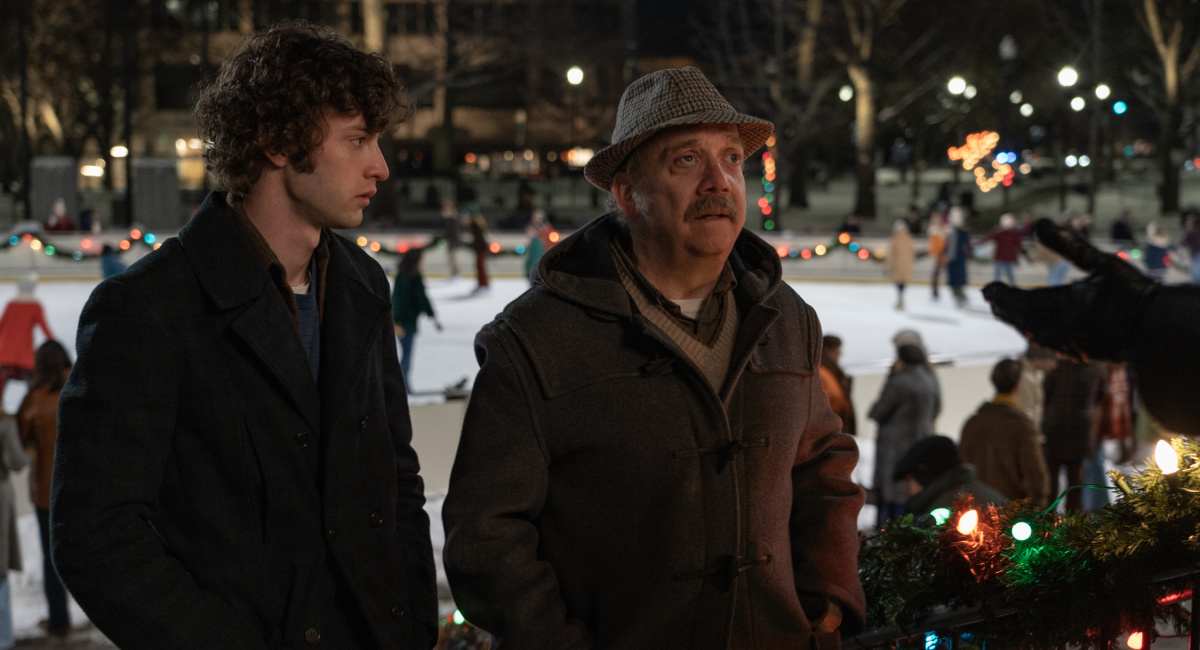
(L to R) Dominic Sessa stars as Angus Tully and Paul Giamatti as Paul Hunham in director Alexander Payne’s 'The Holdovers,' a Focus Features release. Credit: Seacia Pavao / © 2023 FOCUS FEATURES LLC.
MF: ‘The Holdovers’ is set in the 1970s, but it also looks and feels like a movie that was made in the 1970s. Alexander, can you talk about how you achieved that?
AP: I don't know at what point I made the decision to try this little trick of making a period film, not just set in 1970, but that it looks, feels and sounds like a movie made in 1970. A big part of me wishes I had been working then and making films then. Again, I don't remember exactly the moment, but connecting the dots, I thought it would be neat for the movie, to just give it something special. ‘Nebraska's in black and white, which just gives it something a little special formally. I just thought, "Well, wouldn't it give this movie something special if we make it look and sound like a movie made in 1970." But what it did, especially as my first period film, was give us the idea that we're not from today presenting period from 1970, but rather pretending that we're working in 1970 making a low budget contemporary film at that point. I think that helped our sense of aesthetic, that the sets and the costumes look as lived in, grimy and old as they would've been had we been making just a low budget contemporary movie back then. But it takes a bit of doing. You have to make sure all the period clothes are kind of lived in and frayed, and all the cars have to be not brand new-looking, but dirty. What's hard to get is old cars that are dented. Because when you're making a movie, they usually belong to collectors who are like, "My car is my baby." So it's hard to get dented ones. But at least we caked in with money. I always put a lot of thought into the movies in terms of what car the protagonist drives. It's always an important thing to think about. It tells you as much about the character as their apartment does. The good ones, I think were, Paul Giamatti's red Saab in ‘Sideways.’ Then the best one is Matthew Broderick's Ford Festiva, a little teeny tiny pathetic Ford Festiva in ‘Election.’
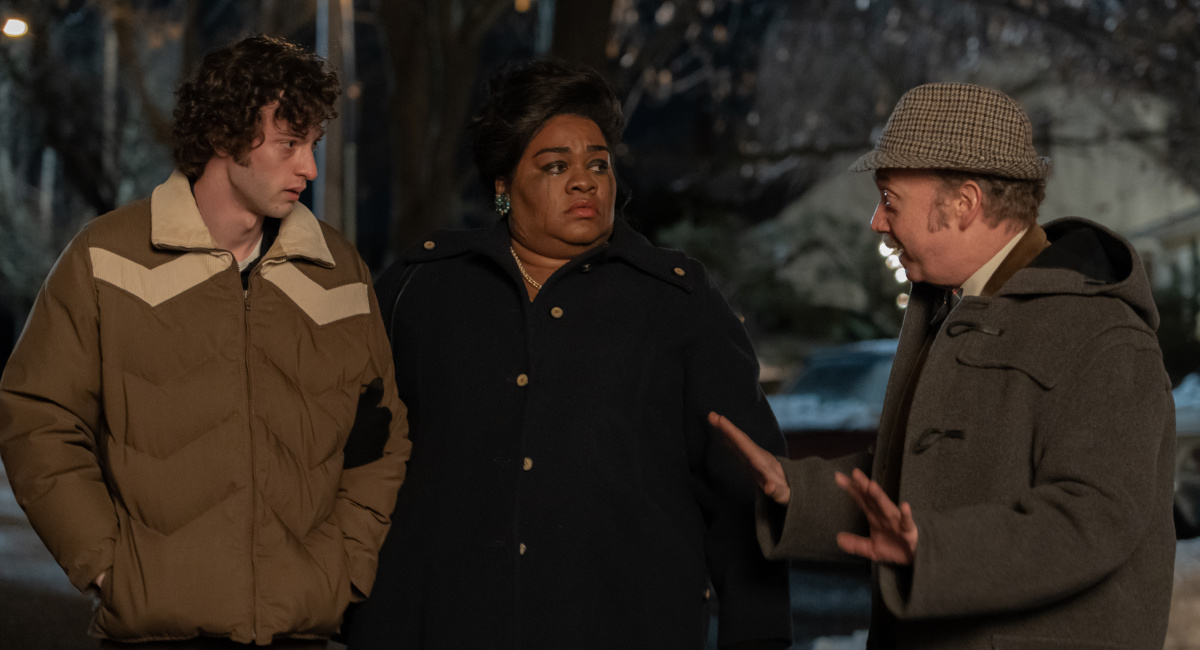
(L to R ) Dominic Sessa stars as Angus Tully, Da’Vine Joy Randolph as Mary Lamb and Paul Giamatti as Paul Hunham in director Alexander Payne’s 'The Holdovers,' a Focus Features release. Credit: Seacia Pavao / © 2023 FOCUS FEATURES LLC.
MF: Kevin, from an editing standpoint, how did you achieve the 1970’s look and feel of the movie?
KT: We didn't really do a lot of things differently than we normally do. We basically cut the same way we always do, which is cutting for performances in our story and our characters. Alexander has said this before, but when you think about it, we've always been making ‘70s movies, and that is kind of true, but visually, this one is obviously a period piece. We did do some tricks and we have some fun with adding grain and some positive and negative dirt, and stuff like that. Some people have been mentioning the dissolves, but we always use dissolves. We used them in ‘Sideways’ and have always used them. So I think that we just did what we normally do, but with all the other elements added it feels more like a ‘70s movie than maybe his other movies. But that's just because of the locations, cars, clothes and wigs, and everyone did a great job.
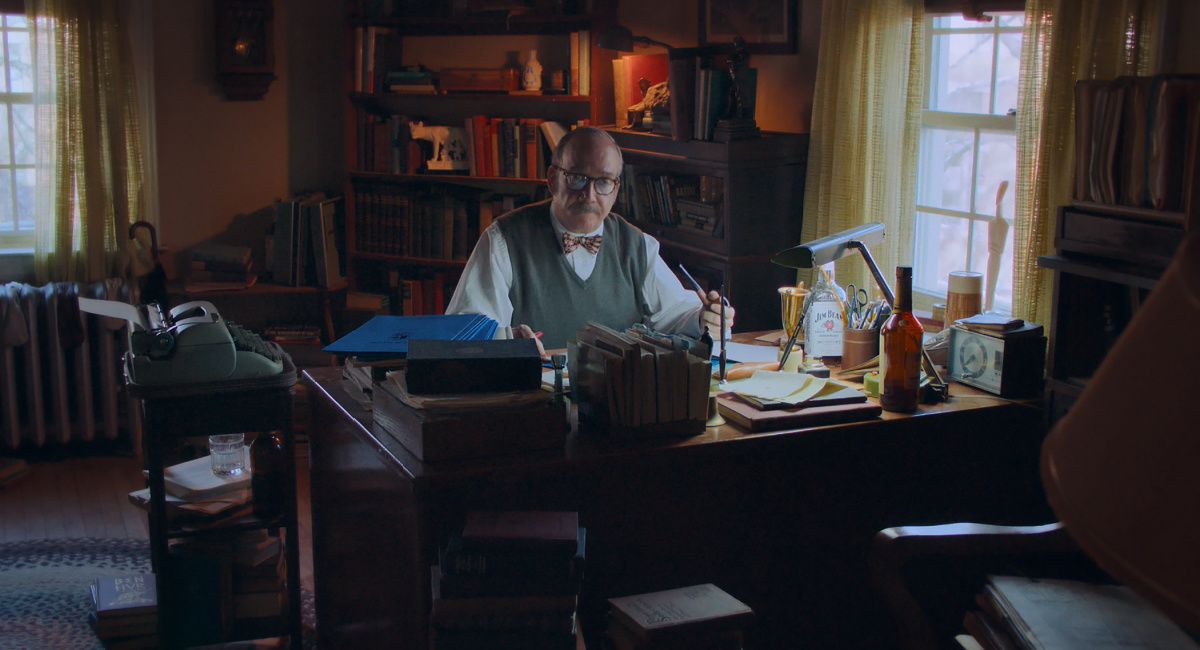
Paul Giamatti stars as Paul Hunham in director Alexander Payne’s 'The Holdovers,' a Focus Features release. Credit: Courtesy of Focus Features / © 2023 FOCUS FEATURES LLC.
MF: Alexander, what was it like reuniting with Paul Giamatti after ‘Sideways,’ and did you always envision him for this role?
AP: Answer to the second part of your question first. Yes. The character's name is Paul. Very early on when David started writing the script, I let Paul know what we were doing just to keep him in the loop and engaged. I showed him a couple of drafts later just to get his input because he's such a smart guy, and good with film and narrative, and to keep him engaged from early on, thinking about his character. Then what's it like working with him? Heaven.
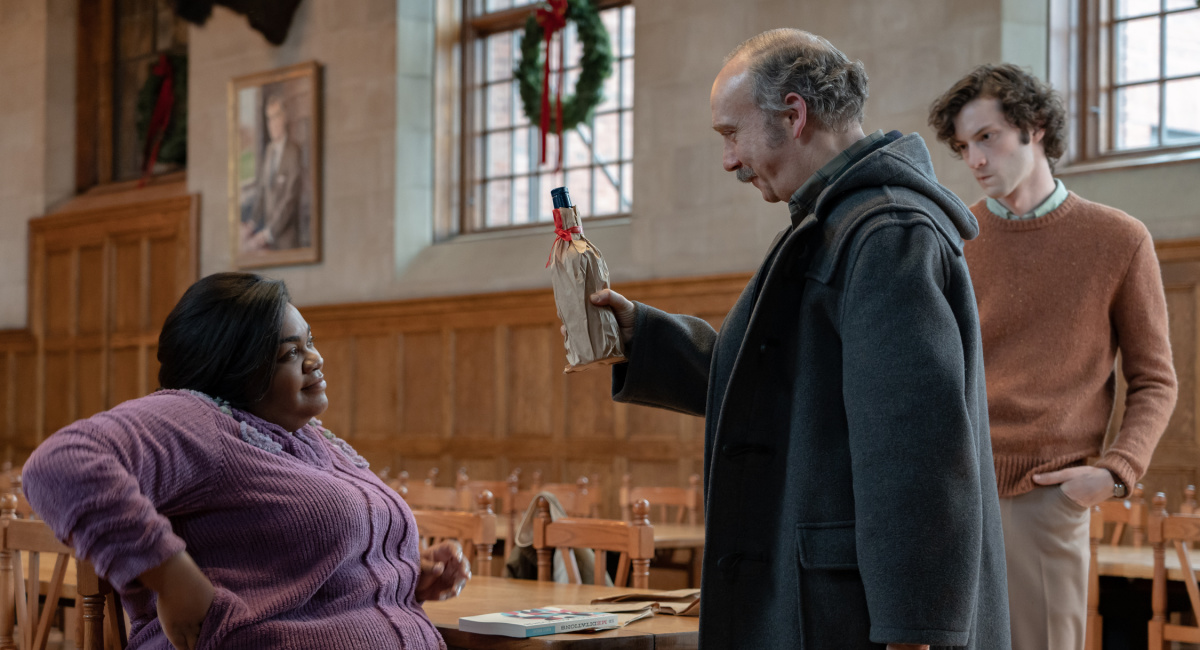
(L to R) Da’Vine Joy Randolph stars as Mary Lamb, Dominic Sessa as Angus Tully and Paul Giamatti as Paul Hunham in director Alexander Payne’s 'The Holdovers,' a Focus Features release. Credit: Seacia Pavao / © 2023 FOCUS FEATURES LLC.
MF: Kevin, what was it like for you to be working with Paul’s performance again in the cutting room on ‘The Holdovers’?
KT: I mean, he's just so good. He was so good on ‘Sideways,’ and he's so good here. I mean, he's a different human than he was then and all that stuff, but he's just phenomenal. He’s so solid and such a generous actor too, to his other actors. He was there for them all the time. David wrote complicated lines to deliver quickly, but he was so locked into the character, that it's phenomenal. I just find him to be amazing.
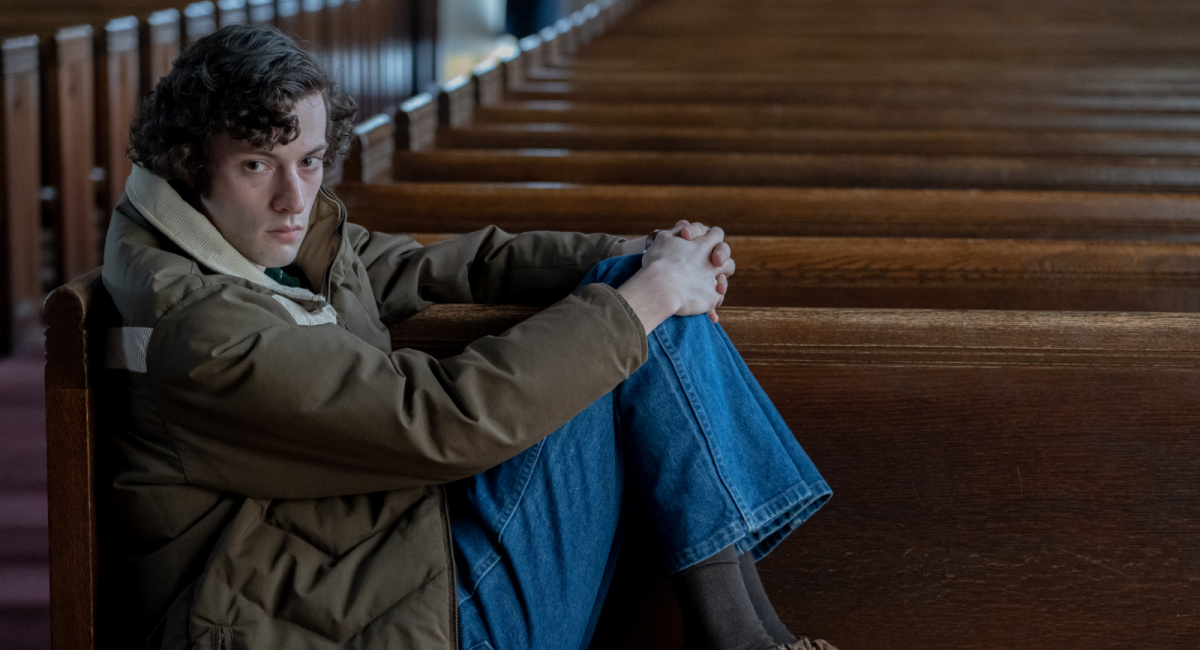
Dominic Sessa stars as Angus Tully in director Alexander Payne’s 'The Holdovers,'a Focus Features release. Credit: Seacia Pavao / © 2023 FOCUS FEATURES LLC.
MF: Alexander, can you talk about discovering young actor Dominic Sessa for this film and was it difficult finding an actor to play that role?
AP: I had the same experience on ‘Election’ years ago. It's hard to find teenagers to be in your movie if you want some veneer of reality about the movie, because the ones who are very experienced, if not famous, not that I know who they are, but that they're in some teen TV show or something, they're often too polished. They're too confident and too polished. I'm sure there are exceptions to that, but in general I have that feeling. Then on the flip side, if you try to cast a non-professional actor or a non-actor, then you're rolling the dice with how experienced they are, can they remember their dialogue and how bulletproof are they going to be? So the answer is usually that those actors are out there, but it takes time to find them. You might luck into it and find them the very first week, like how Mike Mills found that little kid (Woody Norman) in ‘C'mon C'mon.’ If you Remember that movie, ‘C'mon C'mon,’ it's a wonderful movie. But the kid in it, even with the camera three inches from his grill, he's just completely natural and how he behaves, that's a phenomenal kid performance. Well, Mike Mills, and I think he used Jennifer Venditti, the New York casting director, found him the first week. Plus that, he was a Brit, so he was even affecting an American accent. We didn't have that luck. It took months and months and over 800 submissions. You can read of a casting call and then email your audition in. So finally we were casting at the five schools where I was actually going to be shooting. There he was waiting for us in the drama department of Deerfield Academy. It worked out really nicely for him in his first role to be a student at one of those academies, playing a student at one of those academies. It worked out just perfectly for him. But he had some personal experience as well that he was able to channel for his role in the movie.
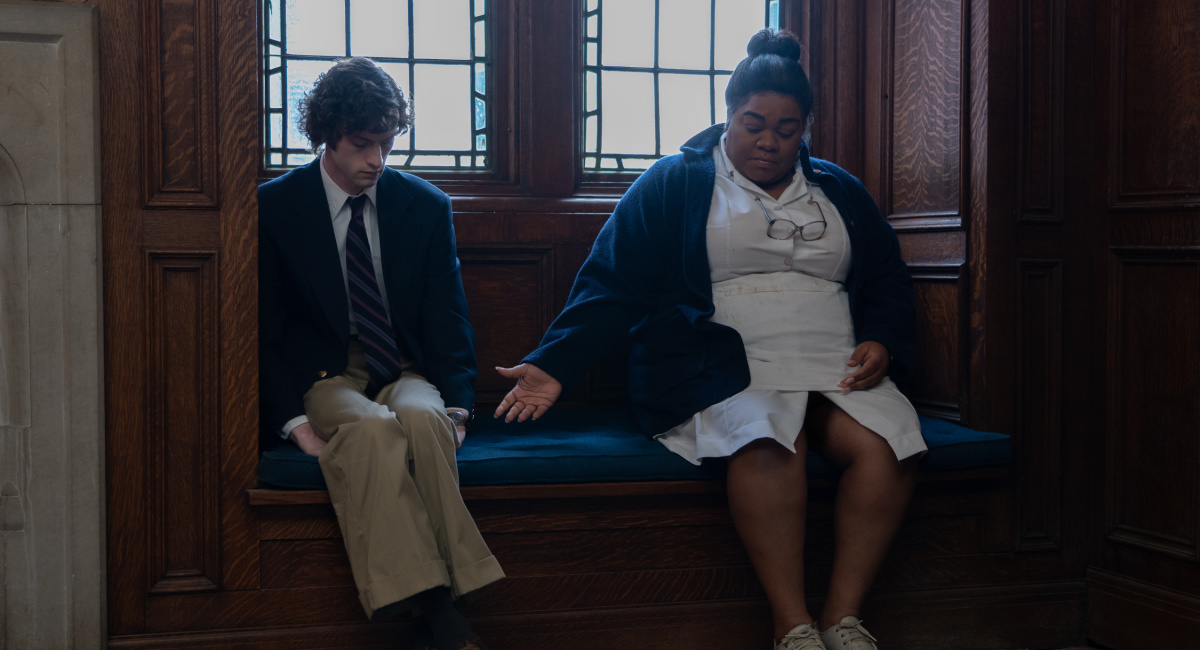
(L to R) Dominic Sessa stars as Angus Tully and Da’Vine Joy Randolph as Mary Lamb in director Alexander Payne’s 'The Holdovers,' a Focus Features release. Credit: Seacia Pavao / © 2023 FOCUS FEATURES LLC.
MF: Kevin, what is like for you as an editor to cut the performance of a first time actor such as Dominic?
KT: It's actually a real excitement, a real pleasure when you're the first editor to see somebody who's really good, exciting and new. Same thing with Shailene Woodley in ‘The Descendants.’ Her first scene was this amazing shot with her in a pool, and a scene that they shot afterwards with George Clooney. I was like, this girl is incredible. I felt so privileged to be the first person to see that performance. I felt the same way about Dom too. It's just a personal thing. It's just a geeky editing thing that you feel lucky to be the first person to see this performance except for the assistant editors and maybe the other people in the room. But you're the first one to see it on a screen, how it will be someday in a movie. That's kind of a thrilling thing, in a geeky editing world kind of way.
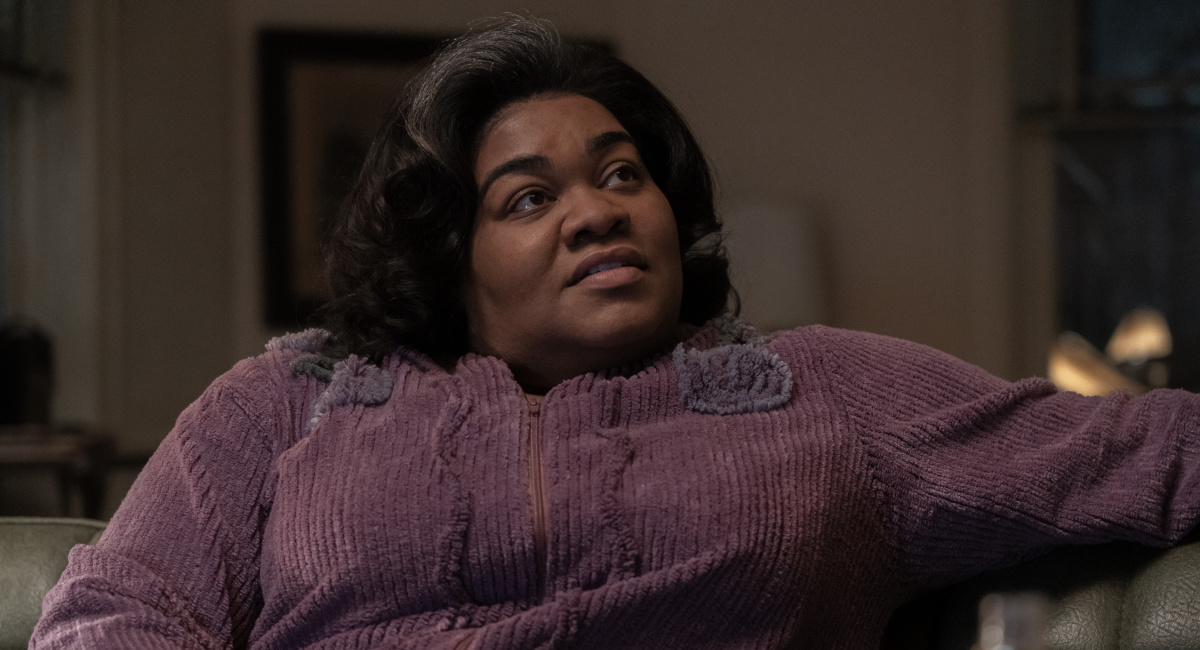
Da’Vine Joy Randolph stars as Mary Lamb in director Alexander Payne’s 'The Holdovers,' a Focus Features release. Credit: Seacia Pavao / © 2023 FOCUS FEATURES LLC.
MF: Actress Da'Vine Joy Randolph gives an incredibly emotional performance in the movie. Kevin, what was it like for you to have that powerful of a performance to work with in the cutting room?
KT: She's got an incredibly expressive face and being. She doesn't even have to say anything, and you just show her, cut to her, and it's just so powerful. So that was another exciting performance to work with. She gave us lots of options on things. But even that, we had so many takes in the Avid, we can stack the different takes. We had probably about five or six on just that shot when the priest at the beginning is talking about her son. We had ones that were angry. We had ones that were just devastated. Each one was different. So we kind of went with one where she's still in disbelief in some ways, and then at the end, it's like she's barely able to stomach what the priest is saying. We didn't go full angry. We went with hurt and angry. But anyways, she gave us lots of options, which was really amazing.
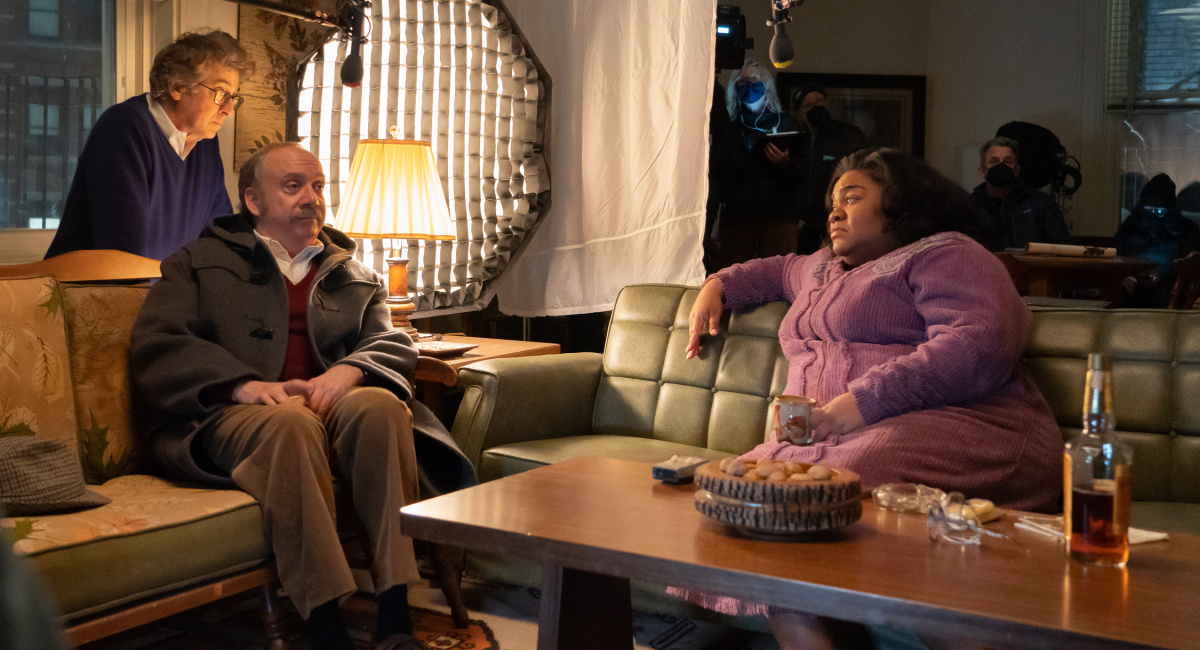
(L to R) Director Alexander Payne and actors Paul Giamatti and Da’Vine Joy Randolph on the set of their film 'The Holdovers,' a Focus Features release. Credit: Seacia Pavao / © 2023 FOCUS FEATURES LLC.
MF: Finally, technology has changed filmmaking a lot since you both started making movies. But has the process of making movies changed for either of you over the years, or are you still basically making movies in the same way?
KT: I think it's just the technology that's changed. We still approach everything in an old-fashioned film way. So ‘Citizen Ruth’ was on film. ‘Election’ was on Avid but we had film, and ‘Sideways’ was on Avid but we had film. Now the last few years, we haven't had film. We've just been all digital. But we work how we used to work, how we first worked on ‘Citizen Ruth,’ which is lining up takes, examining them over and over, picking our takes, and trying not to cut too much. We try not to over-cut. So trying to get the best performances to last as long as they can, that’s kind of our thing. We really haven't changed much in our process. Of course, we can do way more now with Avid. We can add music and sound effects, and we do all that kind of stuff. But basically, we still approach things how we always have with our performance choices.
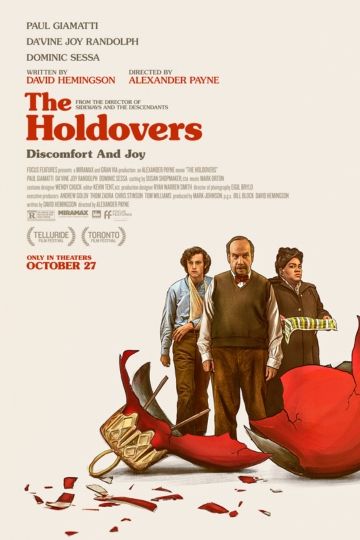
What is the plot of ‘The Holdovers’?
Set in the early 1970s, the film follows Paul Hunham (Giamatti), a disliked teacher at Barton Academy, who's responsible for supervising students who are unable to return home for the Christmas holidays. During this process, Hunham is forced to deal with one particularly rebellious but troubled student, Angus (Sessa), who is grieving the loss of his father.
Who is in the cast of ‘The Holdovers’?
- Paul Giamatti ('Sideways') as Paul Hunham
- Dominic Sessa as Angus Tully
- Da'Vine Joy Randolph ('Dolemite Is My Name') as Mary Lamb
- Carrie Preston ('They/Them') as Miss Lydia Crane
- Gillian Vigman ('The Hangover') as Judy Clotfelter
- Tate Donovan ('Good Night, and Good Luck') as Stanley Clotfelter
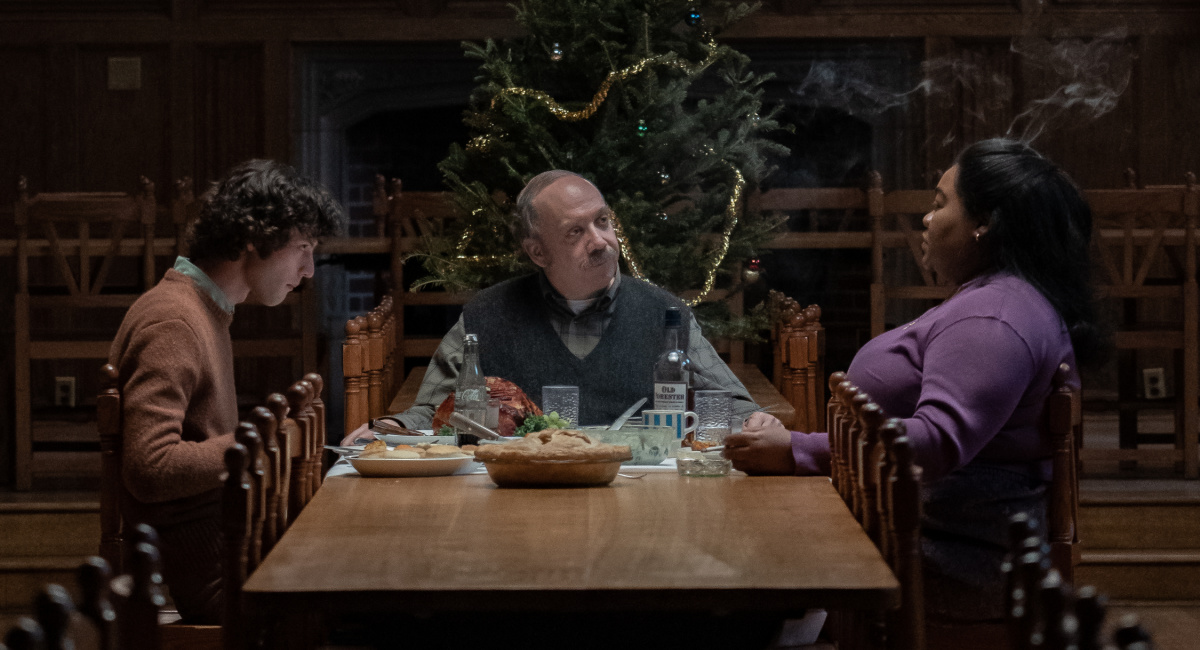
(L to R) Dominic Sessa stars as Angus Tully, Paul Giamatti as Paul Hunham and Da’Vine Joy Randolph as Mary Lamb in director Alexander Payne’s 'The Holdovers,' a Focus Features release. Credit: Seacia Pavao / © 2023 FOCUS FEATURES LLC.
Other Alexander Payne Movies:
- 'Citizen Ruth' (1996)
- 'Election' (1999)
- 'About Schmidt' (2002)
- 'Sideways' (2004)
- 'The Descendants' (2011)
- 'Nebraska' (2013)
- 'Downsizing' (2017)
Buy Tickets: 'The Holdovers' Movie Showtimes
Buy Alexander Payne Movies on Amazon




